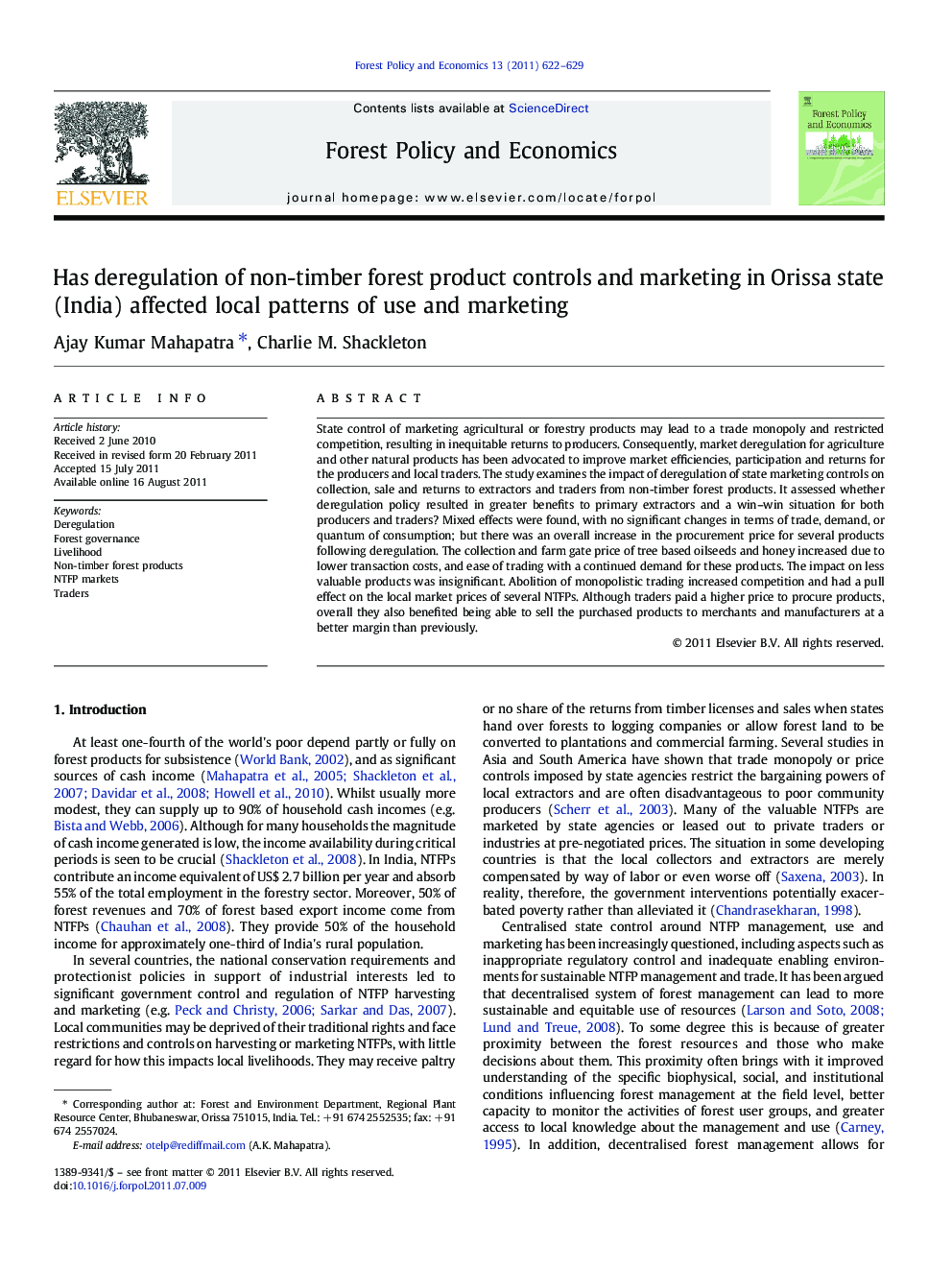| Article ID | Journal | Published Year | Pages | File Type |
|---|---|---|---|---|
| 91500 | Forest Policy and Economics | 2011 | 8 Pages |
State control of marketing agricultural or forestry products may lead to a trade monopoly and restricted competition, resulting in inequitable returns to producers. Consequently, market deregulation for agriculture and other natural products has been advocated to improve market efficiencies, participation and returns for the producers and local traders. The study examines the impact of deregulation of state marketing controls on collection, sale and returns to extractors and traders from non-timber forest products. It assessed whether deregulation policy resulted in greater benefits to primary extractors and a win–win situation for both producers and traders? Mixed effects were found, with no significant changes in terms of trade, demand, or quantum of consumption; but there was an overall increase in the procurement price for several products following deregulation. The collection and farm gate price of tree based oilseeds and honey increased due to lower transaction costs, and ease of trading with a continued demand for these products. The impact on less valuable products was insignificant. Abolition of monopolistic trading increased competition and had a pull effect on the local market prices of several NTFPs. Although traders paid a higher price to procure products, overall they also benefited being able to sell the purchased products to merchants and manufacturers at a better margin than previously.
► The result of the study highlights impact of policy changes on the forest dependent community in relation to their collection and trading of non timber forest products. ► Although the pro poor policy often benefit primary stakeholders, several external factors also influence the intended intervention producing varying result for different products. ► The deregulation brings more competition and better return for both collectors and traders and significantly influence income from NTFPs post free trading scenarios.
